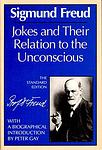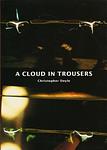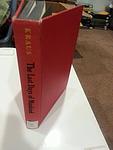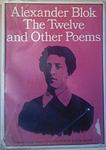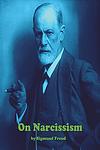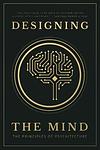The Greatest Russian, Austrian Books From 1910 to 1919
Click to learn how this list is calculated.
This list represents a comprehensive and trusted collection of the greatest books. Developed through a specialized algorithm, it brings together 288 'best of' book lists to form a definitive guide to the world's most acclaimed books. For those interested in how these books are chosen, additional details can be found on the rankings page.
Genres
Countries
Date Range
Reading Statistics
Click the button below to see how many of these books you've read!
Download
If you're interested in downloading this list as a CSV file for use in a spreadsheet application, you can easily do so by clicking the button below. Please note that to ensure a manageable file size and faster download, the CSV will include details for only the first 500 books.
Download-
1. Petersburg by Andrei Bely
"Petersburg" is a symbolist novel set in the heart of Russia during the 1905 Revolution. It follows the story of a young man who is given the task of assassinating his own father, a high-ranking government official, by a radical political group. The narrative is a complex mix of politics, family drama, and philosophical introspection, all set against the backdrop of a city in turmoil. The novel is renowned for its vivid and poetic descriptions of the city itself, making Petersburg as much a character in the story as the people who inhabit it.
-
2. My Childhood by Maxim Gorky
"My Childhood" is a poignant and powerful autobiographical account of a young boy's life in 19th-century Russia. The narrative explores the harsh realities of growing up in a dysfunctional family, with a cruel stepfather and an uncaring mother, against the backdrop of poverty and social unrest. The protagonist's struggles, resilience, and observations provide a vivid portrayal of the societal conditions of the time, while also illuminating the human capacity for hope and perseverance in the face of adversity.
-
3. The Unconscious by Sigmund Freud
This book delves into the complex workings of the human mind, exploring the concept of the unconscious. The author posits that our conscious mind is only a small fraction of who we are, and that a vast part of our thoughts, feelings, and behaviors are driven by unconscious processes. He discusses theories on dreams, slips of the tongue, and neuroses, arguing that these are all manifestations of unconscious desires and conflicts. The book provides a foundation for understanding psychoanalysis and the author's influential theories on the human psyche.
-
4. Golem by Gustav Meyrink
This novel is a dark and atmospheric tale set in the mystical alleys of Prague's Jewish ghetto. It weaves the story of a man who, haunted by amnesia, embarks on a surreal journey to uncover his identity. Along the way, he encounters a series of bizarre and enigmatic characters, including the mythical Golem, a creature molded from clay and brought to life through ancient Kabbalistic magic. The narrative delves deep into themes of existential dread, mysticism, and the blurred lines between reality and illusion, all while painting a vivid picture of early 20th-century Prague and its rich Jewish folklore. Through its complex plot and haunting imagery, the book explores the depths of human consciousness and the mysteries that lie beyond the surface of the known world.
-
5. The Twelve by Alexander Blok
"The Twelve" is a controversial and symbolist Russian poem that weaves together the chaotic and transformative energy of the 1917 Russian Revolution with mystical and religious elements. Set against the backdrop of a blizzard in Petrograd, the narrative follows twelve Red Army soldiers as they march through the city's streets, grappling with their purpose and the violent upheaval of the old order. The poem is renowned for its vivid imagery, complex allegories, and the provocative inclusion of a Christ-like figure amidst the revolutionary fervor, challenging readers to interpret the convergence of spiritual and political themes.
-
6. Hadji Murat by Leo Tolstoy
The novella centers on the real-life figure Hadji Murat, a 19th-century Chechen rebel commander who, after a falling out with his own leader, Imam Shamil, defects to the Russians for a chance to avenge his family. Caught between the complex military and cultural conflicts of the Russian Empire and the fiercely independent Chechen tribes, Murat's struggle for honor, survival, and revenge reflects the brutal realities of the Caucasian War. As he navigates the treacherous political landscape, his story becomes a poignant exploration of loyalty, betrayal, and the dichotomies of human nature.
-
7. A Cloud In Trousers by Vladimir Mayakovsky
This early 20th-century poetic masterpiece blends revolutionary fervor with intense personal emotions, reflecting the tumultuous era of its creation. The work is a four-part epic poem that delves into the author's passionate and tumultuous love affair, juxtaposing his individual romantic experience with broader social and political upheaval. The poet's innovative use of language, rhythm, and imagery breaks from traditional forms, mirroring the chaotic spirit of the time and the poet's desire for both personal and societal transformation. Through vivid and often jarring metaphors, the poem conveys a sense of disillusionment with love and the contemporary social order, while also expressing a fervent hope for a new and better world.
-
8. Fallen Leaves by Vasily Rozanov
"Fallen Leaves" is a collection of philosophical and autobiographical essays that delve into the author's musings on a wide range of topics, including religion, sexuality, and society. The work reflects the author's critical examination of modernity and the decline of traditional values, as well as his personal sense of isolation and disillusionment with the contemporary world. Through a series of fragmented and often controversial reflections, the author grapples with the existential challenges of his time, presenting a candid and introspective exploration of the human condition at the turn of the 20th century.
-
9. The Last Days of Mankind by Karl Kraus
"The Last Days of Mankind" is a satirical play that provides a critical commentary on the socio-political climate during World War I. The narrative presents a stark portrayal of the absurdity of war and the destructive forces of propaganda, bureaucracy, and nationalism. The author uses a variety of literary techniques, including parody, satire, and direct quotes from contemporary sources, to highlight the folly and tragedy of war. The play is known for its unique style, rich language, and its profound critique of society and culture during a time of great upheaval and conflict.
-
10. State And Revolution by Vladimir Il’ich Lenin
This seminal political theory text delves into the role of the state in society and the necessity of proletarian revolution to dismantle the bourgeois state apparatus. It argues that the working class must seize state power, dismantle the existing state machinery, and establish a dictatorship of the proletariat as a transitional phase towards the creation of a classless, stateless society. The work critically analyzes the ideas of Marx and Engels on the state, while also addressing the practical aspects of revolution, including the suppression of the bourgeoisie by the proletariat. It serves as a theoretical foundation for understanding the dynamics of class struggle and the path towards socialism.
-
11. The Twelve And Other Poems by Aleksandr Blok
"The Twelve and Other Poems" is a collection that captures the tumultuous spirit of early 20th-century Russia through a blend of lyrical and narrative poetry. The centerpiece of the collection is a long poem that portrays the chaotic and transformative energy of the Russian Revolution, as seen through the eyes of twelve Red Army soldiers marching through the snowy streets of Petrograd. The work is known for its complex interplay of themes, including revolution, love, betrayal, and redemption, and it employs a range of poetic styles, from the symbolic to the realistic. The additional poems in the collection further explore the psychological and societal upheavals of the time, offering a poignant reflection on a nation in the throes of profound change.
-
12. Poems Of Anna Akhmatova by Anna Akhmatova
This collection presents a poignant anthology of works by a prominent Russian poet, whose verse captures the complexities of life and love against the backdrop of the early 20th century, including the turmoil of the Russian Revolution and the hardships of the Stalinist era. The poems are marked by their lyrical intensity, emotional depth, and personal reflection, often weaving together themes of individual suffering, resilience, and the enduring power of the human spirit. The poet's distinctive voice and masterful use of language have cemented her place as a significant figure in the literary canon, offering readers a deeply moving and introspective journey through her experiences and observations.
-
13. Poems Of Georg Trakl by Georg Trakl
This collection presents a haunting and evocative body of work from an early 20th-century poet known for his intense imagery and lyrical exploration of themes such as decay, death, and nature. The poems delve into the spiritual and existential crises of modernity, often reflecting the poet's own tormented psyche and the tumultuous backdrop of World War I. Rich in symbolism and dark beauty, the verses capture a profound sense of melancholy and an acute awareness of the human condition, leaving readers with a lingering sense of both despair and transcendence.
-
14. Instincts and Their Vicissitudes by Sigmund Freud
"Instincts and Their Vicissitudes" is a psychological analysis that explores the concept of instincts, their transformation, and their impact on human behavior. The book delves into the complexities of human instincts, proposing that they can be suppressed, redirected, or even reversed, and discusses their role in shaping our actions, desires, and anxieties. The author also examines the relationship between instincts and the conscious and unconscious mind, offering a comprehensive understanding of human psychology.
-
15. On Narcissism by Sigmund Freud
"On Narcissism" is an influential psychological work that explores the concept of narcissism, which is characterized by excessive self-love or self-centeredness. The author delves into the origins and development of narcissism, distinguishing between primary narcissism seen in infants who have not yet differentiated themselves from the outside world, and secondary narcissism in adults. The book argues that narcissism is a necessary stage in normal development, but can also be a characteristic of various mental health disorders if it persists into adulthood. The author also introduces the concept of the ego ideal, which plays a critical role in the development of the self and its relations to others.
-
16. Observations on "Wild" Psycho-Analysis by Sigmund Freud
This book is a critique and analysis of psychoanalysis practiced without proper training or understanding. The author argues that such "wild" psychoanalysis can be harmful and misleading, as it often leads to incorrect interpretations and misdiagnoses. The book also discusses the importance of professional training and adherence to established psychoanalytic methods, emphasizing that psychoanalysis is a complex and nuanced discipline that requires a deep and thorough understanding.
-
17. The Future Prospects of Psycho-Analytic Therapy by Sigmund Freud
This book presents an exploration of the potential future of psychoanalytic therapy as seen by its most famous proponent. It discusses the theory and practice of psychoanalysis, its potential benefits and drawbacks, and the challenges faced by the discipline in its continued development. The author also addresses the potential for psychoanalysis to contribute to a broader understanding of human behavior and mental health, and considers the implications of these insights for the future of therapy and counseling.
-
18. The Origin and Development of Psycho-Analysis by Sigmund Freud
This book offers an in-depth exploration of the birth and evolution of psychoanalysis as a field of study. The author, a pioneer in the field, delves into the intricacies of the human mind, presenting theories on dream interpretation, the unconscious, and the impact of childhood experiences on adult behavior. The book also provides insight into therapeutic techniques used in psychoanalysis, emphasizing the importance of understanding the underlying causes of psychological disorders for effective treatment.
-
19. Thoughts for the Times on War and Death by Sigmund Freud
This book is a profound exploration of the psychological impact of war and death on the human psyche. The author, a renowned psychologist, delves into the collective guilt and anxiety experienced by society during wartime, and the denial of death's inevitability as a self-preserving mechanism. He also discusses the disillusionment that arises when the veneer of civilization is stripped away, revealing the primal instincts beneath. The book is a deep, philosophical discussion about the human condition, morality, and the psychological consequences of war and death.
-
20. Repression by Sigmund Freud
This book delves into the concept of repression, a fundamental aspect of psychoanalytic theory. The author explores the idea that individuals often repress memories, particularly those associated with trauma or discomfort, pushing them into the unconscious mind. This repression, however, can lead to various psychological issues such as anxiety, depression, and neurosis. The book also discusses the therapeutic process of making the unconscious conscious, enabling individuals to confront and deal with these repressed memories.
-
21. The Theory of Economic Development: An Inquiry into Profits, Capital, Credit, Interest, and the Business Cycle by Joseph A. Schumpeter
This book presents a detailed analysis of the mechanisms of economic development, focusing on aspects such as profits, capital, credit, interest, and the business cycle. The author argues that economic development is driven by innovative entrepreneurs who disrupt the status quo, creating new goods and methods of production. He highlights the role of credit in facilitating these innovations, and examines the cyclical nature of economic development. The book also explores the societal and political implications of this process of 'creative destruction'.
-
22. In the Land of White Death by Valerian Albanov
This book is a gripping first-person account of a Russian navigator's survival journey in the Arctic wilderness. After his ship gets trapped in pack ice, the protagonist and his crew embark on a grueling trek across the frozen landscape, battling extreme weather, starvation, and despair. The narrative provides a vivid depiction of the harsh Arctic environment and human resilience in the face of adversity.
-
23. Professor Bernhardi by Arthur Schnitzler
The play revolves around a Jewish physician who heads a Viennese clinic and becomes embroiled in a scandal when he prevents a Catholic priest from giving the last rites to a dying patient who is unaware of the seriousness of her condition. His actions, motivated by a desire to preserve the patient's peace of mind, are misinterpreted as anti-Catholic, leading to a public outcry and a power struggle that reflects the deeply ingrained anti-Semitism and political opportunism of the time. The doctor's principled stand becomes a flashpoint for societal and professional conflict, raising questions about ethics, religion, and the corrosive effects of prejudice.
Reading Statistics
Click the button below to see how many of these books you've read!
Download
If you're interested in downloading this list as a CSV file for use in a spreadsheet application, you can easily do so by clicking the button below. Please note that to ensure a manageable file size and faster download, the CSV will include details for only the first 500 books.
Download

